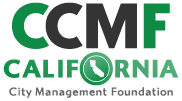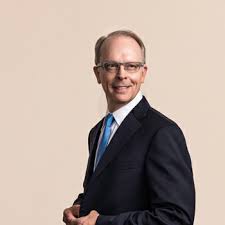Q&A with Robert Gamble, CCMF Secretary/Treasurer and Managing Director at Public Financial Management (PFM).
What attracted you to a career in local government?
I had a fascination with government and public policy even as a kid. I remember long discussions with my father about those issues at a young age. I was involved in student government in high school and in college. I chose to get my Master’s in Public Policy at the University of California, Berkeley in the very early days of that program in the mid-70s. Those experiences led me into local government.
Please describe your path to your current role at Public Financial Management.
My career has had three major chapters:
First, I went directly from getting my master’s degree at Berkeley into government in the City and County of San Francisco. I started off in the Budget Office of the Board of Supervisors and went from there to the CAO’s office. I was Deputy CAO from 1982 to 1985. Then I was the Budget Director for the city, initially under Mayor Dianne Feinstein and then under her successor. In my last government job, I was the CFO of the San Francisco Redevelopment Agency. I was in government for 20 years.Second, I took a turn and went to work for a private philanthropy foundation in San Francisco called the Goldman Fund for seven years. I was Executive Director of the fund for several years.
After that, the third major chapter was coming into the private sector and starting to work at Public Financial Management. I’ve been here for the last 15 years as a public finance consultant for governments.
What project are you the most proud of from your time with the City and County of San Francisco?
When I was at the Redevelopment Agency, our biggest single accomplishment was getting Yerba Buena Gardens built after many, many years of effort. My work on that project focused on financing the public portions of the project and how to dovetail those funds with the private investments. It was a pretty big deal because the city had been trying to build the project for decades. I was lucky to get there at a time when the project could happen, but there were pretty significant obstacles. The city was in a recession at the time in the early 90s. It was a really good project for the city and a really good project for me, since I learned so much. I also helped get Mission Bay started, which became a successful redevelopment area based around biotech and the University of California, San Francisco (UCSF) area.
What do you enjoy the most about your role at PFM?
I enjoy the opportunity to work with a wide range of local governments. There’s two aspects that I enjoy the most:
First, I learn something from almost every job I’m in. While there is overlap and similarities, it’s fun to learn something new in each situation. There’s always some nugget of wisdom I am able to pick up.
Second, I am able to use what I learn to help someone else with a similar problem. The lessons that I take away are something that I can offer to others.
How do you help uphold the public’s trust in local government?
There’s a need to speak truth to power and be honest with people by communicating in a way that everyone can understand. That approach is the core of how I’ve tried to work throughout my career to help people understand their opportunities and options, and to sort through those choices in a rational way. My job is not to tell people what to do – it is to help them figure out what works best for them.
What are two of the greatest challenges facing city managers in California today?
At the moment we’re in now, it all has to do with the financing of local government. After many decades of living with Prop. 13, we’ve reached a point where all the workarounds we’ve developed to allow local government to function have been used up. Combined with the immense (although hopefully short-term) challenges posed by COVID-19, local government finances are in a very difficult situation.
The related second challenge I’d touch on is the relationships among cities and counties, and then the relationships between those local governments and the state of California. There needs to be a fundamental restructuring of those fiscal relationships.
What are some of the benefits of a council-manager form of city government?
This form of government is a structure that allows the rationality of the manager to speak to the political objectives of the council. It provides a structure for that discussion around means and ends to occur in a civil environment that accounts for politics, but is not overly politicized. It allows for the rational to meet the political. It doesn’t work all the time, but it works well a lot of the time and provides a good balance of considerations.
How does the issue of local control impact the future of California?
There’s always going to be a tension between local control and funding that comes from other places, whether from the state or the federal government. There’s always going to be a need to work out common policy objectives. Over the course of my career, I’ve learned that politics is local. If local considerations are not seriously taken into account, over time, public policies will fail. It’s important to have a structure of government that understands the importance of local political considerations.

